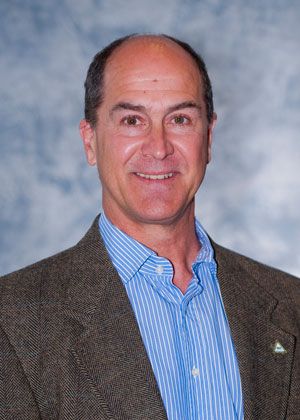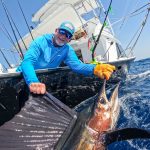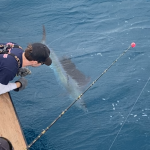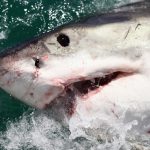Originally published: Tuesday, November 27, 2018 | Please click here for original article.
Eight University of South Florida professors whose research has set a global standard in a range of disciplines from environmental sciences to health and aging studies, and from chemistry to criminology, have been named Fellows of the American Association for the Advancement of Science, the world’s largest multidisciplinary scientific society.
The USF honorees include a faculty member whose work in pioneering a new treatment for post-traumatic stress disorder is helping save the lives of veterans; a criminologist whose research into why kids kill has helped guide criminal justice systems nationwide; a freshwater ecologist whose research has led to vital conservation efforts and sustainable policies across Florida and around the world; and a professor who led landmark research into the impact of caregiving for the families of patients with Alzheimer’s disease and other chronic conditions.
They are joined in recognition by a marine biologist who has spearheaded a global network of satellite and other observation systems to chart biodiversity and changes in ocean environments from a local to global scale; an anthropologist whose work in understanding the relationship between people and their environment is helping renew neighborhoods near USF and improve environmental management around the world; a chemistry professor whose work is helping advance drug discovery, especially for treatments for cancer and infectious disease; and a neurobiologist whose research of the brains of birds is unlocking the secrets of the evolution of the brain in mammals.
Election as a Fellow is an honor bestowed upon AAAS members by their peers. This year, 416 members from institutions around the world have been awarded the honor in recognition of their scientifically or socially distinguished efforts to advance science or its applications.
This year, USF again ranks fourth worldwide for institutions with the most new AAAS Fellows elected –tied with Indiana University. USF has the highest number of new AAAS Fellows among universities in Florida, and this new class brings USF’s total number of AAAS Fellows to 65.
“We are incredibly proud of the career achievements of these eight faculty members and the work they have done to advance knowledge in fields that touch the daily lives of people both in the Tampa Bay region and around the world,” said Paul R. Sanberg, USF senior vice president for research, innovation and knowledge enterprise. “To be named as an AAAS Fellow is one of the highest honors in academic research, and it is one that recognizes the monumental impact these individuals have had in addressing universal problems and in creating a healthier, safer and more compassionate world.”
New Fellows will be presented with an official certificate and a gold and blue (representing science and engineering, respectively) rosette pin on Feb. 16 during the 2019 AAAS Annual Meeting in Washington, D.C. The tradition of AAAS Fellows began in 1874.
Frank E. Müller-Karger, Ph.D.
Elected AAAS Fellow in the Biological Sciences Section
Citation: For distinguished contributions to marine science, particularly in advancing understanding of biodiversity and the dispersal of water from the largest rivers to the world’s oceans.
 [/responsive]
[/responsive]Frank E. Müller-Karger is a Professor in the USF College of Marine Science and the Director of the USF Institute for Marine Remote Sensing. As a biological oceanographer, Dr. Müller-Karger’s research focuses on how marine ecosystems change over time. Using a time series of observations to study changes in water quality, primary production, and biodiversity in coastal marine environments, he is advancing a broader understating of the impacts of large-scale phenomena such as climate change and human activities on ecosystems, and how these changes in turn affect society. Dr. Müller-Karger has made several significant contributions to the field. He pioneered efforts to map the dispersal of water from large rivers in the ocean, including water from the Amazon, Orinoco, Magdalena and Mississippi Rivers. He led a team that established the Carbon Retention in a Colored Ocean (CARIACO) Ocean Time Series Program. This 25-yearlong study tracked the seasonal variability in phytoplankton production at the Cariaco Basin off the coast of Venezuela and documented the links between large-scale ocean changes, biodiversity of the plankton, changes in fisheries in the region, and the fine sediments that settle to the bottom of the anoxic Cariaco Basin. Dr. Müller-Karger is internationally recognized for his work using satellite observations, and among other impactful outcomes, contributed to the first high resolution global map of shallow tropical coral reefs. Dr. Müller-Karger continues to use satellites that measure ocean color and sea surface temperature to assess the importance of continental margins in the global carbon budget. As a result of his leadership across a number of national and international studies, Dr. Müller-Karger was named a Commissioner to the U.S. Commission on Ocean Policy by former President George W. Bush. He has served on the Ocean Studies Board of the National Research Council/National Academies. He currently serves as a Co-lead for the Marine Biodiversity Observation Network, an initiative supported by NASA, BOEM and NOAA. He serves as an expert on panels for NASA, the Intergovernmental Oceanographic Commission, and other professional science groups. He previously received the NASA Jet Propulsion Laboratory Award for Outstanding Contributions and the NASA Administrator Award for Exceptional Contribution and Service for supporting development of satellite technologies for ocean observation. Over the course of his career, he has published more than 250 articles, book chapters and influential reports. Dr. Müller-Karger speaks Spanish, German, and English. He received a B.S. in biological oceanography from Florida Institute of Technology; a M.S. in oceanography at the University of Alaska, and he completed his Ph.D. in marine and estuarine sciences at the University of Maryland. He also holds a M.S. in management from the University of South Florida.





